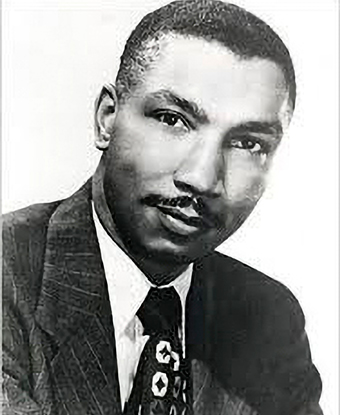Last updated: December 30, 2020
Person
Robert L. Carter

Courtesy photo from NAACP
After law school, before even taking the bar exam, Robert Carter joined the Army Air Corps, where he served from 1941 to 1944, and felt the full effects of segregation first hand. He applied to officer candidate school, and eventually worked as a lawyer for the military. Upon his discharge, Carter took the New York Bar Exam, and went on to work for the NAACP Legal Defense Fund, where he was a legal assistant to Thurgood Marshall.
Carter was part of the legal team that developed the NAACP’s strategy for ending segregation. In 1950, Carter, Thurgood Marshall, and Spottswood Robinson went to South Carolina to work with Kenneth Clark, who would become an expert witness on the psychological effects of segregation on students. In 1951, Carter, along with Jack Greenberg, went to Topeka, Kansas to meet with the local attorneys and help gather expert witnesses.
Carter was responsible for arguing the Topeka case (Brown v. Board of Education) at the U.S. Supreme Court level. Carter continued to work for the NAACP after the Brown decision until 1968. He worked in a private law firm for about four years before he was appointed U.S. District Court judge for the Southern District of New York in 1972. In 2005, Carter published his memoir, A Matter of Law, and shared the story of his struggle for civil rights.
